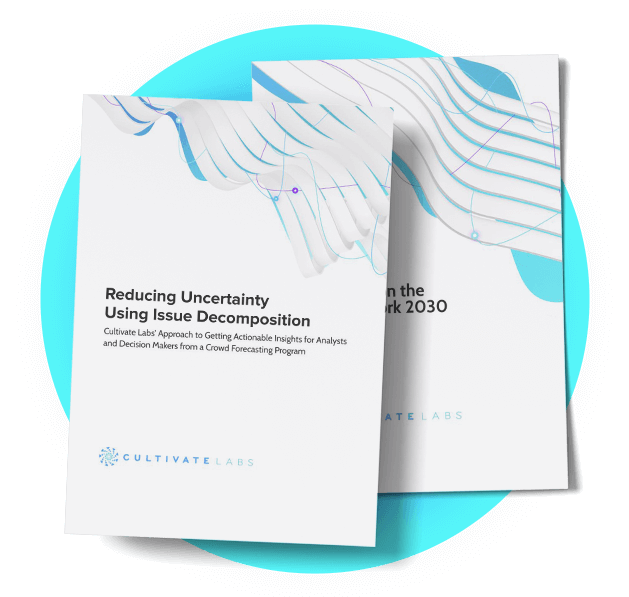Our Point of View on Internal Enterprise Crowdsourcing
How you operate your business is about to change forever.
Internal crowdsourcing combines the collective experience and knowledge of your organization to help you make more informed decisions.
"Your people have insights, diverse backgrounds, and experience that has simply never been leveraged before."
Technology is improving our lives in many ways, but it's also bringing a lot of unexpected change. Almost every human institution that exists today - companies, governments, academic institutions, and economics - were created at times when free, real-time communication was unfathomable. When you hear technology companies talk about "disruption", they're usually talking about changing an institution that was based on an assumption that people couldn’t communicate in real-time for free.
Enterprise crowdsourcing isn't about changing a specific industry, but rather the very nature of how businesses and other organizations operate. Enterprise crowdsourcing challenges the command-and-control model of businesses, which says that tasks should be done by specialized departments, with information flowing up to decision-makers at appropriate time intervals and then back to departments at the discretion of their managers. Command-and-control actually makes a lot of sense when communication is expensive, but it's becoming increasingly inappropriate as a way of doing business now that communication is free, and people - especially younger employees - are used to something different, and dare we say, better.
When you need to forecast your company's sales for the next quarter, the old model said you should hire an analyst or consultant and assign them the task of sales forecasting. Even more recent "big data" initiatives fall down if the model doesn't have good input or lots of historical data. The new model says you should ask everyone at your company using some sort of crowdsourced forecasting technique. This communication is reasonably cheap (compared to paying analysts/consultants) and it can be more accurate. Your people have insights, diverse backgrounds, and experience that have simply never been leveraged before.
"Those who once had no say in these types of issues, can suddenly become the entrepreneurs and investors."
Identifying and prioritizing new ideas is the lifeblood of growth in any organization. Having a company that is innovative is every CEO's dream. But the paths to innovation are often via luck vs. systematic process. Crowdsourcing changes that. The same disruptive forces at work, with sites like Kickstarter, where thousands of inventors and artists are being funded by millions of individuals can be harnessed inside your organization. Your people, who once had no say in these types of issues, can suddenly become the entrepreneurs and investors. You simply turn over control of some of your budget and let people vote - with company money - about the types of new ideas that deserve attention and investment.
These are just two examples of how internal crowdsourcing will fundamentally change how organizations operate. Companies like Shell, Broadspectrum, AstraZeneca, and even the U.S. Government are already experiencing the benefits of internal crowdsourcing.

